Experienced travelers take essential steps to ensure smooth and stress-free hotel checkouts.

Before leaving a hotel, seasoned travelers follow a series of practical steps to streamline their checkout process and avoid common hassles. From double-checking rooms for forgotten belongings to reviewing final bills and confirming transportation plans, these actions help prevent last-minute stress. Paying attention to small details, such as returning keys and notifying staff of any issues, contributes to a polite and efficient departure experience that all travelers can appreciate.
1. Double-check the room for personal belongings before packing up.
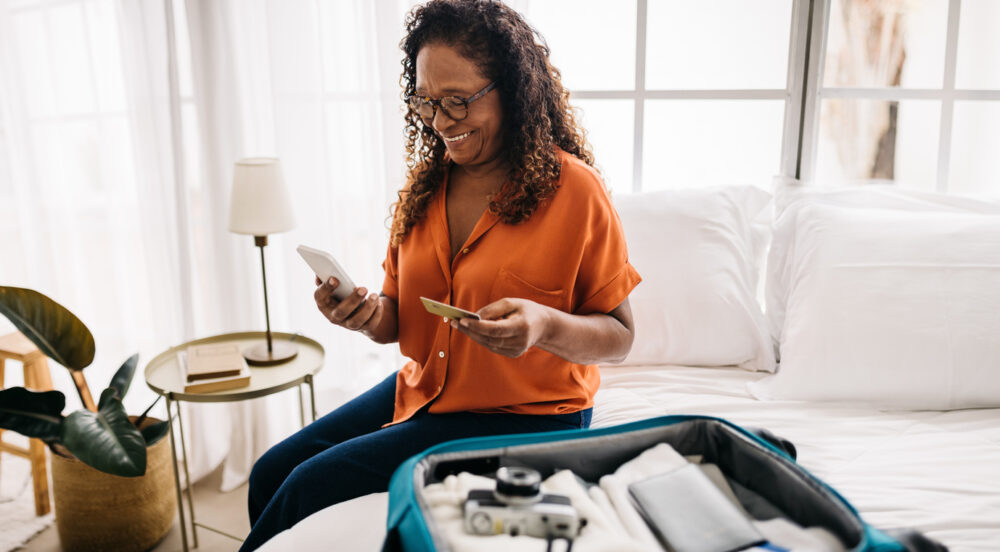
Travelers often find that a brief scan of the room helps in recovering overlooked items. Chargers nestled in wall outlets can escape notice, blending into the backdrop of hotel life. A purposeful walk-through might reveal a forgotten jacket or jewelry resting on the closet shelf.
Keeping track of personal belongings ensures a smoother transition. Losing valuable items is both inconvenient and distressing, especially when far from home. Checking drawers, bathroom counters, and bedding one last time can prevent the frustration of unnoticed absences after departure, according to Reader’s Digest.
2. Review the bill carefully for any unexpected charges or errors.

Before heading to the lobby, it’s wise to review your final bill. Occasionally, erroneous charges like minibar snacks or in-room movies appear, especially after a busy stay. Confirming each item can save you from unwanted surprises at checkout, as mentioned in Medium.com.
Understanding the bill fosters transparency and minimizes disputes. Hotels might include extra fees if not addressed, complicating the payment process. Asking questions at the front desk allows resolution on the spot and ensures an accurate account of your stay.
3. Return room keys or access cards to the front desk promptly.
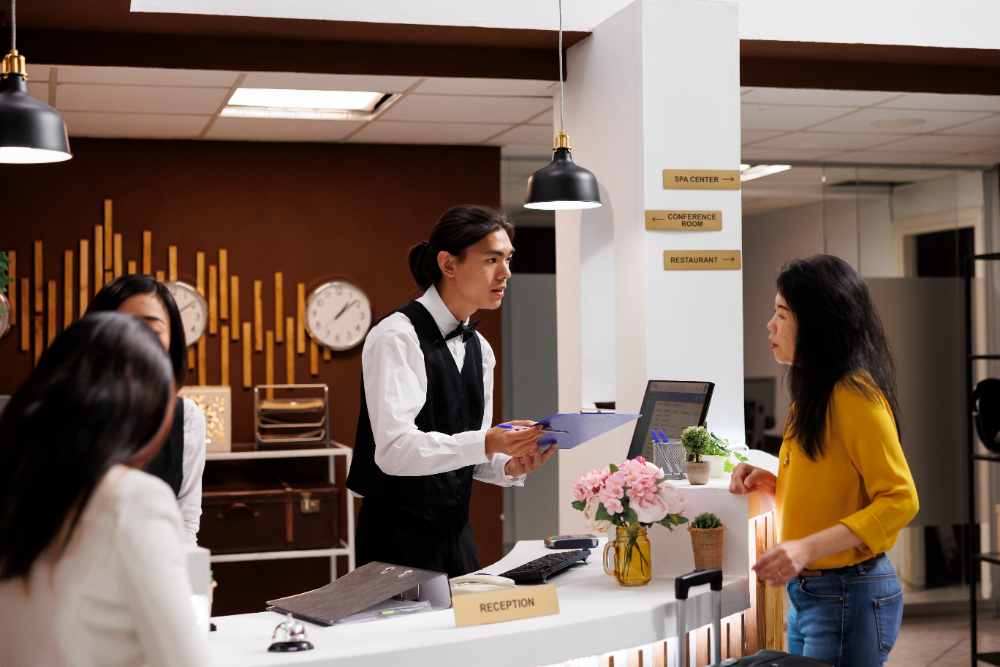
Handing over keys or access cards is a common courtesy at checkout, signaling the room is vacated. Hotels depend on the prompt return of these items to maintain security and prepare the room for the next guest.
Failing to return keys might lead to additional charges. Moreover, it helps end the service neatly, clearing any potential confusion about room availability. Like leaving a friend’s house, returning borrowed items confirms everything’s in order, as shared by Travelers Unite.
4. Take photos of the room condition to avoid potential disputes.
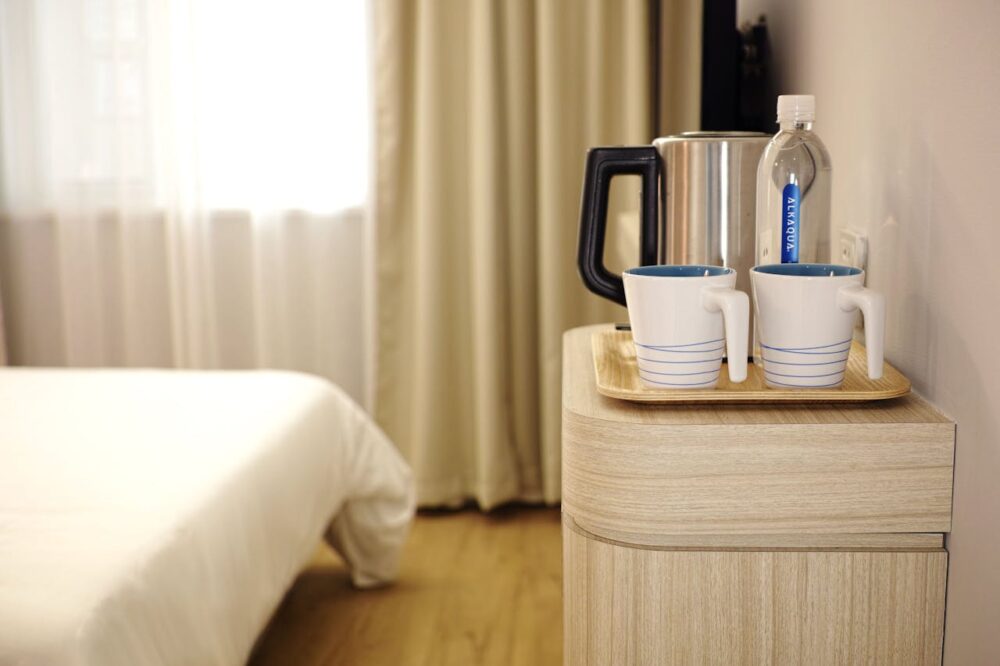
Snapping a few photos of your room’s condition helps in preventing any future misunderstandings about damage claims. A worn carpet or loose wallpaper might lead to disputes if the imagery is not documented.
Providing this visual evidence clarifies pre-existing room conditions, benefiting both traveler and hotel. If issues arise, the photographic record supports your position, ensuring fair treatment. Peace of mind comes from knowing all aspects are transparently shared.
5. Confirm transportation arrangements in advance to avoid last-minute stress.
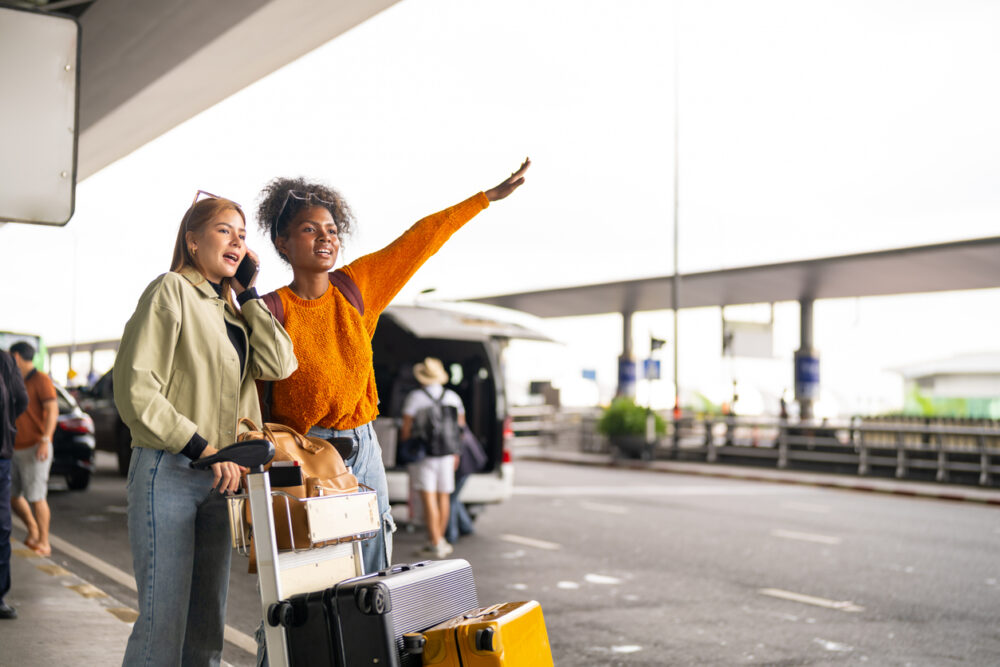
Arranging transportation ahead of time benefits travelers by removing last-minute rushes. Whether securing a taxi, ride-share, or shuttle, early reservations confirm your travel plans and align your schedule seamlessly.
Proactive arrangements prevent the anxiety of impending delays. Missing a train or flight due to stalled transportation can swiftly derail travel. Knowing a ride is set and scheduled provides much-needed reassurance amid the hustle of departure.
6. Dispose of any trash and tidy up to leave the room respectful.

Leaving a tidy room with properly disposed trash promotes goodwill and eases the cleaner’s job. Used wrappers or discarded toiletries expertly collected maintain hygiene and leave a respectful impression for your hosts.
A clean exit reflects personal accountability, echoing considerate behavior cultivated across travel experiences. Housekeeping staff greatly appreciate this gesture as it expedites their preparations. Just as you’d tidy up after a guest, the same respect applies in transit.
7. Notify housekeeping if you need a late checkout or special service.

When plans change unexpectedly, communicating with hotel staff about a late checkout or service requirements allows accommodations to be adjusted. Hotel policies can often be flexible when anticipatory notice is provided.
This communication assists in managing room availability for staff, making them allies in ensuring a pleasant goodbye. Last-minute requests without notice coerce quick decisions, leaving them less prepared to offer assistance.
8. Collect any laundry or valuables left with hotel staff.
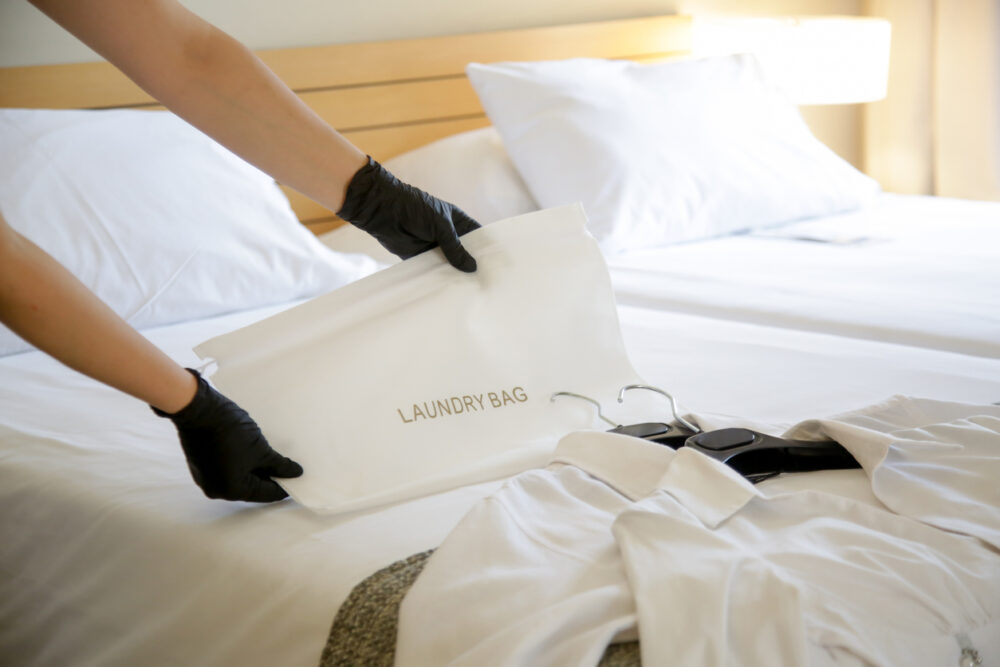
Retrieving personal items left with hotel staff, like laundry or stored valuables, closes the service circle. Ensuring retrieval ensures nothing is left behind unduly, simplifying onward travels and preserving collected experiences.
Confirming these exchanges illuminates the provision of hospitality services, delivering completed stays without fragmentation. Unclaimed belongings can complicate future reminiscing over a trip when essential pieces are still somewhere behind.
9. Leave a clear tip for housekeeping based on the length of stay.

Leaving an appropriate tip for housekeeping acknowledges the care taken during your stay. This small gesture based on the length and nature of your visit highlights the appreciation for their often-invisible work.
Tipping reflects cultural gratitude within hospitality, denoting respect for behind-the-scenes labor. A well-deserved thank-you goes beyond service exchange, fostering connections with those facilitating comfort, much like one might thank a friend for hosting.
10. Check for any hotel amenities or services you might have forgotten.

Recalling unused amenities or unclaimed services near departure rounds out the stay, ensuring nothing is overlooked. Enjoying these available extras enhances experiences, whether lounging at the pool or sampling a final espresso in the lounge.
This awareness underscores settlement of your time in the location with thoroughness. Leaving behind undiscovered features can end in missed adventures, whereas engaging with them affirms a thoughtfully filled agenda.
11. Make sure all electronic devices and chargers are unplugged and packed.
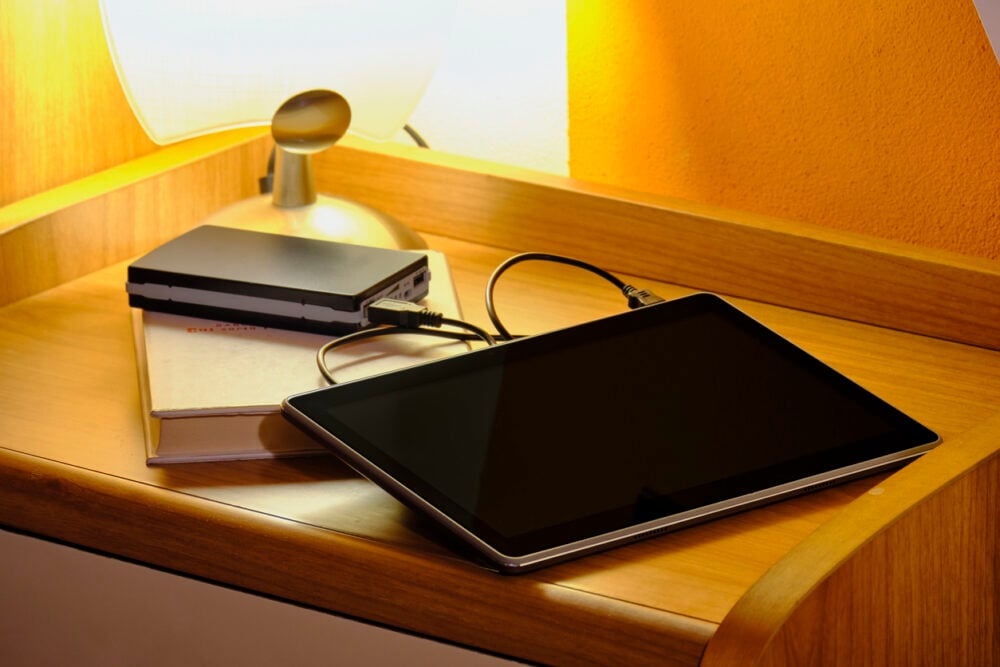
Ensuring all electronic devices and chargers are unplugged before packing acts as an environmentally friendly step backward from a tranquil stay. A last glance often uncovers several plugged gadgets, silently working overtime in their forgotten state.
Taking inventory avoids the regret of noticing missing devices only after the distance grows. Reconnecting with technology elsewhere brings closure to restful pauses managed within confines, making subsequent use purposeful.
